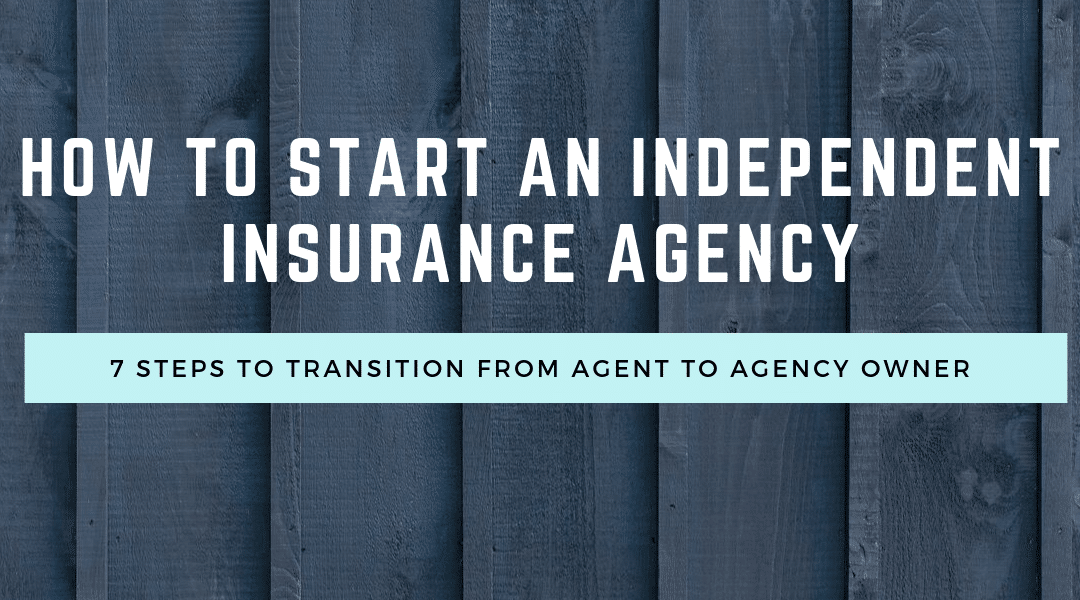Learn how to start an independent insurance agency with these seven steps that will make it easy to transition from agent to agency owner.
Imagine your commute taking less than a minute. You completely miss all the traffic, the bad drivers, and the construction. Did you teleport to work? No! You’re an independent insurance agency owner who works from your home office. Let us show you how to start an independent insurance agency, successfully.
1. Write a Business Plan
Writing a business plan was probably not your first thought when you started considering how to start an independent insurance agency. The reason why you need to write a business plan for your agency may not be clear to you at first, but make no mistake, this step is a crucial part of the process.
First, you’ll need a business plan if you want to secure funding through debt financing such as bank loans or equity financing. A business plan is also a useful document to use when you’d like to attract other stakeholders to help you fund your business. Finally, a business plan will serve as the blueprint for running your business and enable you to better understand the insurance industry, your customers, and your competition.
Usually, business plans include an executive summary, a company description, information about products, a market analysis, marketing strategy and implementation, organization and management, a financial plan, and a funding request. Check out this useful guide to building an insurance agency business plan to learn exactly how to start an independent insurance agency, successfully.
Could your business use more sales revenue? Blitz can help to nurture relationships and win more customers with our easy and effective sales follow up software! Schedule a free demo with us!
2. Choose a Legal Structure
When you choose the legal structure of your business, you’re choosing how personally liable you’ll be for your business. For example, if you’re sued in court and you lose, the plaintiff can go after your bank account, home, or car. That’s why researching the right legal structure is so important when learning how to start an independent insurance agency. The different kinds of legal structures are:
- Sole Proprietorship
- Partnership
- Limited Liability Corporation (LLC)
Sole Proprietorship
With a sole proprietorship business structure, the individual is held personally liable for any debts. Like in the example above, if you owe money, the plaintiff can take it from your bank account, home, or car.
Partnership
When two or more people own a business, they can form a partnership. The two kinds of partnerships are limited partnerships (LP) and limited liability partnerships (LLP). A limited partnership (LP) indicates that one person of the partnership has unlimited liability, while the other partner(s) have limited liability. The one person with unlimited liability has the most control over the company, while the partners have limited control. In a limited liability partnership, every partner has limited liability. This option means that the rest of the partners are protected if a debt is incurred by another partner.
Limited Liability Corporation (LLC)
An LLC contains advantages from both the corporation and the partnership structures. With an LLC, your personal assets are protected from bankruptcy or lawsuits. Read this article by the U.S. Small Business Administration to determine which business structure is right for your independent insurance agency.
3. Register Your Agency’s Name
The next step is deciding on a name for your agency. While some agents decide to use their own names when choosing an agency name, you can really choose anything. Look for a name that immediately spells out to the customer your purpose and is easily searchable online.
4. Apply for a Tax ID Number
If you choose to do a sole proprietorship business structure, you can use your own social security number to file the taxes for your independent insurance agency. However, if you’ve chosen another option, your insurance agency needs an identification number to file taxes. You can apply for a Federal Employer Identification Number here.
Increase the effectiveness of your sales and marketing efforts at your company with our easy-to-use follow up software! Blitz is reasonably priced, and is packed with the tools your agency needs! Contact us to learn more!
5. Register Your Business with the State
Now that you have a way to pay your federal taxes, you have to register your agency with the state commissioner’s office in order to be able to pay your state and local taxes. Use this map provided by the National Association of Insurance Commissioners to find the contact information for your state.
6. Get the Appropriate License or Permit
Depending on where you live, in addition to your insurance license, you may also be required to have a general business permit or state license. This U.S. Small Business Administration Licenses and Permits article has more information about finding which licenses and permits you may need for your independent insurance agency.
7. Purchase E&O Insurance
Purchasing errors and omissions insurance (E&O), a form of professional liability insurance and professional indemnity insurance (PII), is a good move, especially if you choose a sole proprietorship business structure. E&O insurance protects companies and their employees against claims of inadequate work. Some financial bodies and states list E&O insurance as a business requirement.

